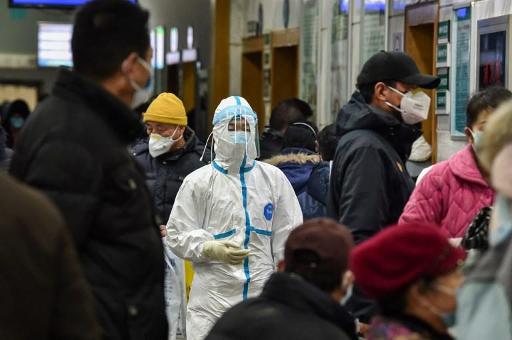The World Health Organisation (WHO) reported today that the number of confirmed cases globally were 80,980. China has reported 78,190 confirmed cases (96,6 % of all cases), including 2,718 deaths.
Outside China, there are 2,790 confirmed cases in 37 countries, with 44 deaths.
“Yesterday, the number of new cases reported outside China exceeded the number of new cases in China for the first time,” said WHO Director-General Dr Tedros Adhanom Ghebreyesus at his weekly mission briefing in Geneve (26 February).
“But this is no time for complacency. This is a time for continued vigilance,” he stressed. “The sudden increases of cases in Italy, in Iran and South Korea are deeply concerning. There are now cases linked to Iran in Bahrain, Iraq, Kuwait and Oman. There are now cases linked to Italy in Algeria, Austria, Croatia, Germany, Spain and Switzerland.”
Despite the fact that the coronavirus has spread to two continents, the WHO Director-General is reluctant to declare that the outbreak has become a pandemic. “Using the word pandemic carelessly has no tangible benefit, but it does have significant risk in terms of amplifying unnecessary and unjustified fear and stigma, and paralyzing systems.”
“It may also signal that we can no longer contain the virus, which is not true. We are in a fight that can be won if we do the right things. Of course, we will not hesitate to use the word pandemic if it is an accurate description of the situation.”
In Brussels, the European Parliament had decided that staff returning from the affected areas in north Italy must stay and work at home. The European Commission has issued similar rules but without coordination with the Parliament and limited the area in Italy to a so-called red zone of 11 towns.
As previously reported, decisions on travel restrictions and border controls fall under the competency of the member states. Decisions should also meet three conditions. They should be based on credible risk assessment and scientific advice; they should be proportionate and they should be taken in coordination with the member states.
A Commission spokesperson confirmed yesterday that member states can decide on border controls on public health grounds but that they would have to notify the Commission about such measures four weeks in advance. Until now, the Commission has not received any notifications.
“We cannot speculate about border controls,” said Dana Spinant, deputy chief spokesperson and admitted that the Commission has no complete overview of checks and screenings in the member states.
The Commission is often referring to the European Centre for Disease Prevention and Control (ECDC), an EU agency located in Stockholm, which is supposed to give scientific advice and is aimed at strengthening Europe's defences against infectious diseases.
Asked by The Brussels Times if ECDC at this stage is considering travel restrictions to/from affected countries and border controls in the EU between member states, a spokesperson replied that it is not within its mandate. ”Border closures are a purely national competency.”
ECDC declined to comment on whether a four weeks notification period makes sense in the current crisis and evolving situation.
As regards checks and screenings at airports and entry points, such measures are not effective, according to ECDC, since the majority of infected people remain undetected. “Modelling work by ECDC has assessed the effectiveness of entry screening with thermal scanners in detecting travellers infected with SARS-CoV-2: it is low.”
“Approximately 75% of cases from affected Chinese cities would arrive at their destination during the incubation period and would have remained undetected.”
“Precautionary measures against COVID-19 at points of entry are known to miss cases that have no symptoms yet or are only mildly symptomatic. Such cases can then go on to transmit the virus and will not be detected until they themselves or contacts of theirs develop severe disease.”
For the time moment, no clear scientific advice on what should be done seems to be available and the way the Commission is looking for such advice is not transparent. Even with scientific advice, a decision would be political and figure in both economic and health risk factors. If the spread of the virus continues in Europe, the health care systems risk of being overburdened.
The virus knows no borders but is spread by infected people crossing borders. The Commission faces a dilemma. A decision on travel restrictions and border controls might contain the spread of the virus but it would contradict the idea of open borders and affect trade and the EU economy in the short term.
The Brussels Times

